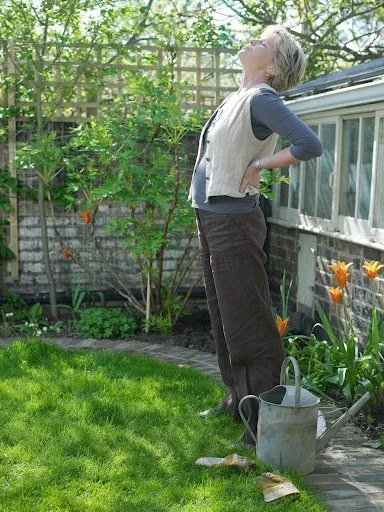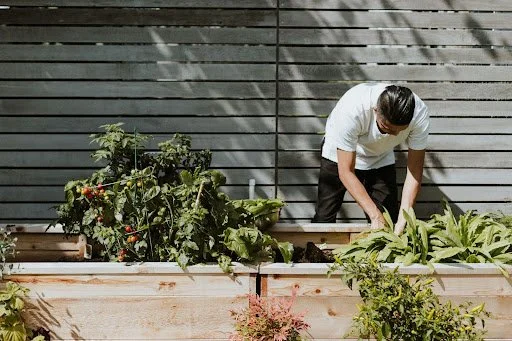How Physiotherapy Can Help with Joint Mobility and Injury Prevention when Gardening
As the seasons change and nature takes us outdoors, there's nothing quite like the satisfaction of cultivating a beautiful garden. However, the joy of gardening can quickly turn sour if we neglect to care for our bodies properly. Back pain, knee strain, and other aches and pains are all too common among avid gardeners. However, with a few simple precautions, you can enjoy your gardening hobby without risking injury. Here are some tips to help you prevent hurting your back, knees, and more while tending to your garden:
1. Warm Up and Stretch:
Before diving into gardening tasks, take a few minutes to warm up your muscles with gentle stretches. Focus on areas like your back, knees, and shoulders to prepare them for movement.
2. Maintain Your Posture:
Maintain proper posture while gardening by bending from your hips and knees instead of your back. Avoid twisting motions and use your leg muscles to lift heavy objects.
3. Use Comfortable Tools
Invest in gardening tools with padded handles and adjustable lengths to reduce strain on your body. Consider using knee pads or a gardening stool to protect your knees and back during prolonged periods of kneeling or sitting.
4. Lift Safely
When lifting heavy objects, remember to bend your knees, keep your back straight, and lift with your legs. Use tools like dollies or wheelbarrows for heavy loads, and ask for help when needed.
5. Listen to Your Body
Pay attention to any signs of discomfort or pain while gardening, and address them promptly. Ignoring warning signs can lead to further injury and prolonged recovery time.
Physiotherapy For Injury Prevention and Joint Mobility
Physiotherapy plays a crucial role in injury prevention and improving joint mobility for gardening enthusiasts. Licensed physiotherapists can offer tailored exercises and techniques to address specific areas of weakness or limitation, helping you garden safely and effectively.
Ways Physiotherapy can help:
1. Assessment and Education: Physiotherapists can assess your current physical condition, identify areas of weakness or imbalance, and educate you on proper body mechanics and ergonomics for gardening tasks. This includes lifting, bending, and reaching techniques to minimize strain on joints and muscles.
2. Strength and Flexibility Training: Physiotherapists can design exercise programs to improve strength and flexibility in the muscles and joints commonly used during gardening activities. This can help prevent injuries by ensuring that the body can withstand the demands of gardening tasks.
3. Joint Mobilization: Physiotherapists can perform manual therapy techniques such as joint mobilization to improve the range of motion in stiff or restricted joints.
4. Balance and Coordination Training: Gardening often requires good balance and coordination, especially when working on uneven terrain or using tools. Physiotherapists can incorporate exercises into a rehabilitation program to improve stability and reduce the risk of falls or accidents in the garden.
5. Pain Management: For individuals who experience pain or discomfort while gardening, Physiotherapists can provide pain management strategies such as therapeutic modalities (e.g., heat or ice therapy), manual therapy techniques, and personalized exercise programs to alleviate symptoms and improve overall function.
6. Posture Correction: Poor posture can contribute to various musculoskeletal issues, including back pain and joint stiffness. Physiotherapists can assess posture and provide guidance on proper alignment and posture correction techniques to reduce strain on the body during gardening activities.
Mainway Physiotherapy offers various services tailored to address and prevent gardening aches, pains, and injuries. The experienced team at Mainway Physiotherapy can support your body throughout the gardening season and beyond! Contact Mainway Physiotherapy today and discover how we can assist you in cultivating a pain-free gardening experience.




